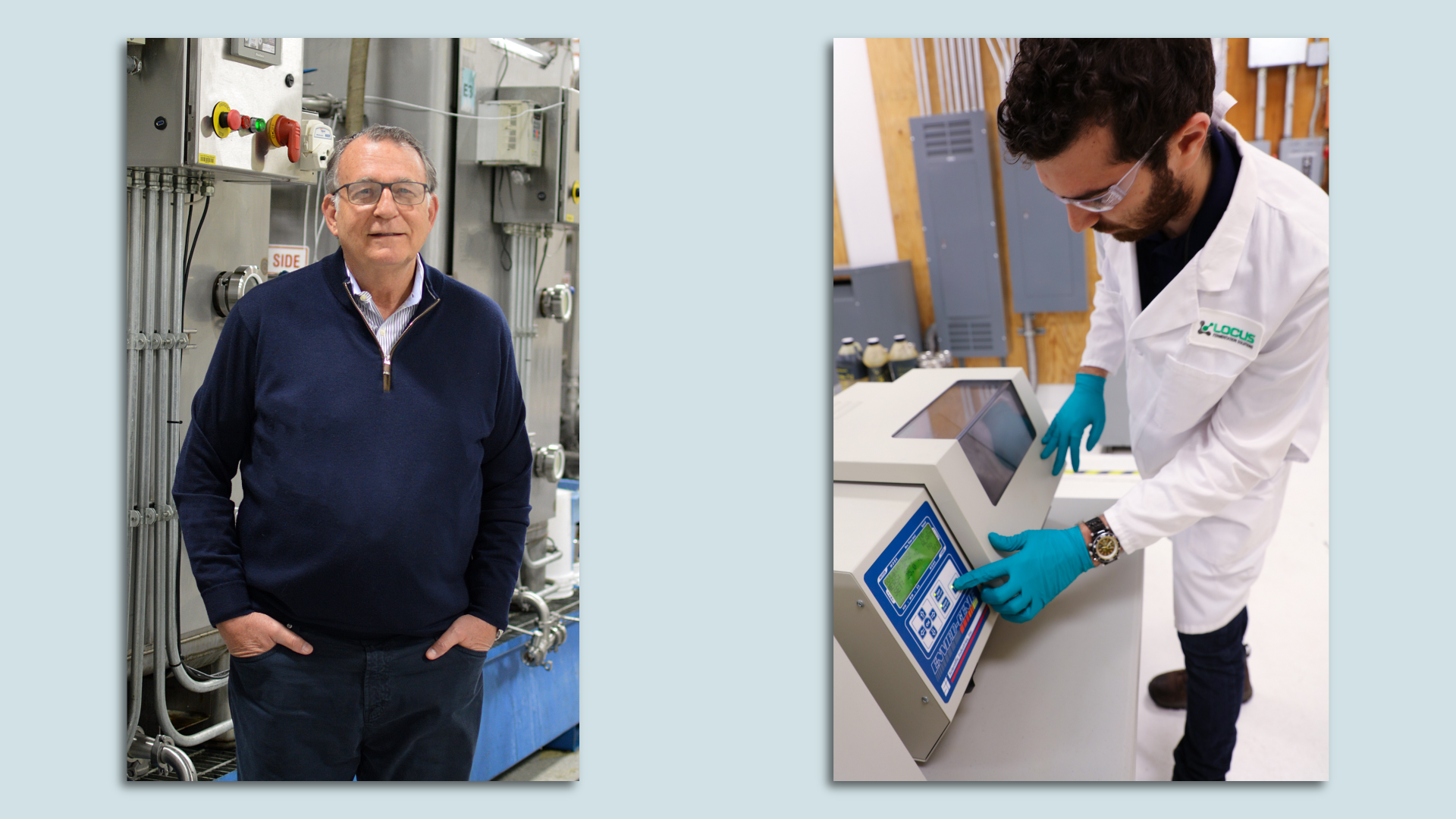Apr 27, 2023 - Climate
Cleveland biotech firm is helping reduce greenhouse gas emissions
Add Axios as your preferred source to
see more of our stories on Google.

Locus Fermentation Solutions' founder and CEO Andy Lefkowitz (L) and a scientist in the Locus labs (R). Photos: Provided by Locus Fermentation Solutions
